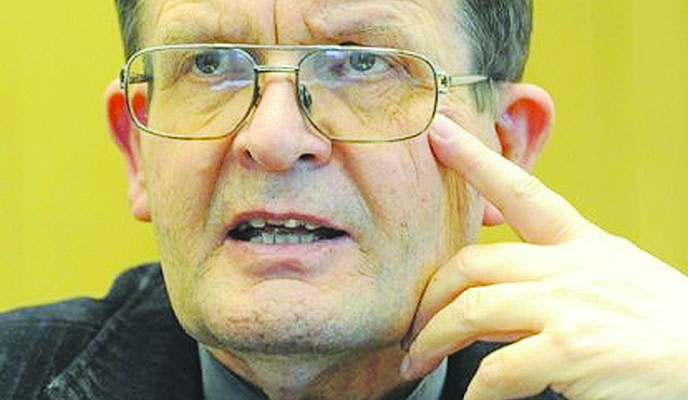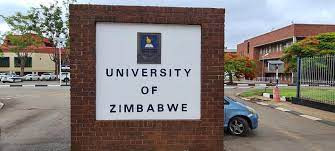
Guest column: Fr Oskar Wermter SJ
YOU can get addicted to many things, eg to gambling for good luck to win a fortune; you can play roulette in a casino and win a big amount by mere chance. You can get dependent on alcohol and drugs, on sex and pornography. You may get addicted to sexual adventures.
Once addictions control your life, you can no longer do without them. Americans and other prosperous populations and plutocrats are very much dependent on “drugs” like cocaine from Latin America.
The US government recognises the great danger of widespread drug addiction. Addicts fail to be disciplined workers. Their “dependency” would do harm to the country and its economy. Workers would be unable to control themselves and perform their duties properly.
So their authorities try to stop the availability of “cocaine”. They fight drug cartels. Dealing in drugs is enormously profitable. “Human trafficking” is a worldwide trade in human beings, especially women and young girls, even boys and men, for providing “workers” for the sex industry. Young women are promised jobs in overseas countries. Some who seek work in Europe and other destinations overseas are even pressurised into “donating” their organs for sale, eg kidneys.
The US military bomb cocaine-producing farms in Colombia and similar places to stop the drug trade at its origin. This may damage the supply-lines run by drug producers, but it does not stop the enormous demand for drugs. “Human trafficking” is a modern form of the centuries old slave trade.
Western Europe and the US are proud that they stopped the trans-atlantic slave trade, especially of Africans forced into slave labour on plantations in Latin America, in the Caribbean and the southern States of the US.
Slave labour is also still used in the Middle East and some Asian countries. Their cargo of humans trafficked for slave labour come from the Philippines. South Africa imported sex slaves at the time of the Soccer world championship a few years ago.
- Chamisa under fire over US$120K donation
- Mavhunga puts DeMbare into Chibuku quarterfinals
- Pension funds bet on Cabora Bassa oilfields
- Councils defy govt fire tender directive
Keep Reading
The soccer tourists expected that young girls would be available for their entertainment and pleasure. “Sex trourists” travel to Thailand and similar South-East Asian countries where they take the availability of such youngsters for granted, just like luxury accommodation and special food stuffs for spoiled tourists.
Crass poverty drives women to join the “sex industry”. Promises of jobs seduce young women to go where the money is and support their families back home.
In many countries of Europe prostitutes are prosecuted and brought to court for sexual offences. The “clients” come off scot-free. Some very liberal countries, eg Sweden, have started to suppress prostitution the other way round.
They no longer chase the “sex workers” (who are mostly victims rather than perpetrators) , but the men who make the “sex industry” vastly profitable.
That is to say, men’s immoral behaviour is criminalised, while the women, including small girls, are handed over to social welfare or are given work opportunities or chances to get an education.
Authorities in such countries start the battle against addiction to sex at the point of supply, where men pick up women for their use.
The women are offered an alternative to “sex work” while the men are prosecuted for human rights violations.
Certain church leaders complain “that we give a great deal of attention to those who might entrap others in these forms of slavery, but we do not spend enough time thinking about the consumers whose demand for services is a real cause of this injustice”. We are told that “the true solution (to human trafficking) is the conversion of heart, cutting off demand in order to dry out the market”. (Worldwide, July 2019).
Not all prostitutes do “sex-work” (as some workers in the “industry” call it euphemistically) as a matter of choice. Many are “trafficked” and “enslaved” for the “industry”. They have no choice because of poverty, unemployment, economic failure etc.
There is demand for sex. If there were not, prostitution would not be a worthwhile “business”. There is a “connection between human trafficking and sexual exploitation in prostitution and pornography”; we must make clear that it is immoral to increase the “demand” for prostitution and pornography”.
The activities of “those who buy sex services and those who profit from victims should be criminalised ”.
It is not the sellers of sex and porn who primarily promote the “trade”, but the buyers (and abusers) of women and girls. This abuse is a crime against women, marriage and families.
The drugs trade is a similar case. It is not the bombing of cocaine farms that will put an end to the trade, but less and less demand for drugs. If people regain their mental and spiritual balance, they will no longer want to deaden their minds and get “high”.
If “sex addicts” would respect the human dignity of impoverished, unemployed and exploited women and cease abusing them, victims would go free.
What causes addiction? It is our emptiness and hopelessness, a vacuous life just making no sense. You can get addicted to many things, get possessed by illusions and false dreams.
Only “the truth will set you free”.
Father Oskar Wermter writes in his personal capacity.











